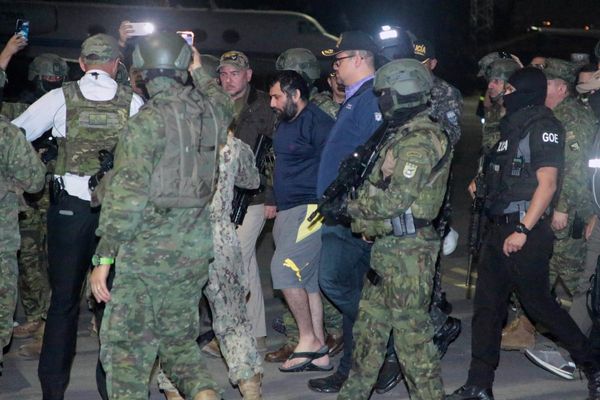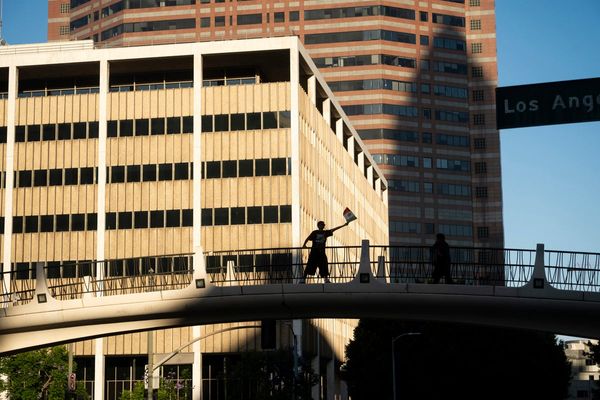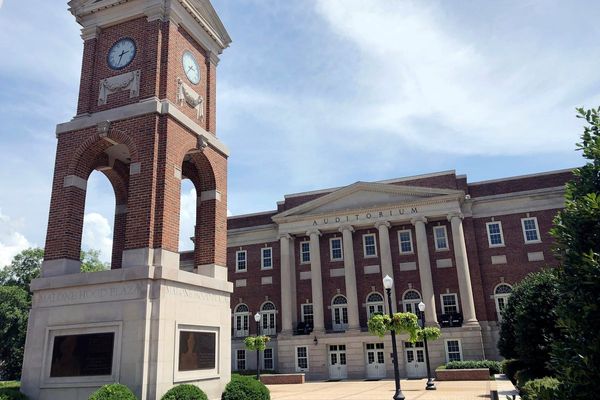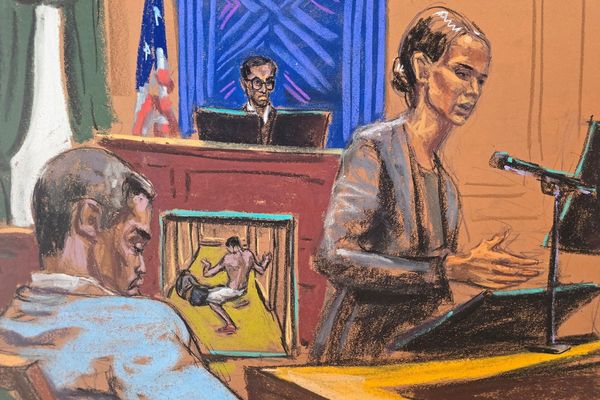
A relaxed Donald Trump said Nato’s decision to increase defence spending to 5% of GDP was a “big win” for western civilisation in a digressive press conference at a summit in The Hague where he reaffirmed the US’s commitment to the military alliance.
There was every sign that the careful setup of the summit – in which most allies in Europe and Canada committed billions more on defence – had worked to keep Trump bound in to the alliance, with the US president praising Mark Rutte, its secretary general, and a night where he “slept beautiful” in the Dutch king’s palace.
Though he took issue with Spain for refusing to meet the 5% spending pledge and criticised CNN and the New York Times for reporting that Iran’s nuclear sites may not have been destroyed by US bombing, none of this disrupted the president’s overall pro-Nato tone.
“When I came here, I came here because it was something I’m supposed to be doing, but I left here a little bit different, differently,” Trump said at the close of the summit. “I watched the heads of these countries get up, and the love and the passion that they showed for their country was unbelievable.”
The president described the summit as “a very historic milestone” in which Nato allies committed to increase their defence spending to 5% of GDP. It was, he said, “something that no one really thought possible. And they said: ‘You did it, sir, you did it’. Well, I don’t know if I did it … but I think I did.”
Though the headline commitment is for Nato members to commit to increasing defence spending to 5% of GDP by 2035, it will consist of 3.5% in core military spending and the rest in infrastructure, intelligence, cybersecurity and other spending that allies can already match. It means a real-terms increase of about £30bn in the UK after 2027.
Trump described this as “the Hague defence commitment”, saying it was “a monumental win for the United States, because we were carrying more than our fair share” and “a big win for Europe and for actually western civilisation” because Europe would now be “stepping up to take more responsibility”.
The US president has long been a sharp critic of the low levels of defence spending by other Nato members, and at the 2018 summit hinted the US might quit the alliance. During his 2024 election campaign, Trump suggested the US might not defend a country being attacked if it were spending less than previously agreed targets.
Those concerns sharpened after Trump’s election win, as Europe and Canada feared that he would reduce US engagement with Nato, shift closer to Russia, abandon Ukraine and rapidly move troops out of Europe. Though the White House is cooler on Europe and Ukraine than its predecessor, a sharp rift has been averted for now.
Earlier on Wednesday, Rutte offered sycophantic praise of the US president in his presence, saying that “Daddy sometimes has to use strong language” – a reference to Trump’s foul-mouthed outburst about Iran and Israel a day before. Just before heading to The Hague, Trump had accused both countries of not knowing “what the fuck they’re doing” after reports of breaches by both of a ceasefire he had imposed.
The Nato secretary general defended his tone towards Trump and denied it was demeaning, though he acknowledged it was “a bit of a question of taste”. Rutte said that Trump was “a good friend” and added: “Would you ever think that this would be the result of this summit if he would not have been re-elected president?”
Asked about Rutte’s comments, Trump reacted positively: “He did it very affectionately. ‘Daddy, you’re my daddy.’”
A day earlier, Trump had also released a series of flattering texts from Rutte. “You are flying into another big success,” said one, linking the Nato spending commitment with the bombing of the Iranian nuclear enrichment site at Fordow, showing him buttering up the president before the meeting.
The significant concession on defence spending, with most Nato countries spending a little over 2% of GDP now, was “not about US taxpayers paying more”, Rutte said – with the US nearly in line with the 3.5% military spending target – but about “Europe and Canada paying more” to, in most cases, increase their defence budgets.
Trump said he had a lunchtime meeting with Ukraine’s president, Volodymyr Zelenskyy, “to see how he is doing” and said in response to a question from a Ukrainian journalist that he pledged to supply Kyiv with Patriot anti-missile interceptors, some of which had been sent to Israel.
“We’re going to see if we can make some available,” Trump added, after asking the reporter where she and her family were living and sending his regards to her husband, a soldier. Later when he was asked if the US would restart military aid to Ukraine, stopped under his administration, he did not rule it out entirely. “We’ll see what happens,” the president said.
In his account, Zelenskyy described the meeting as productive, and said his priority was “the purchase of American air defence systems to shield our cities, our people, churches, and infrastructure” and said that Ukraine was willing to buy the equipment and “support American weapons manufacturers”.
However, in his closing press conference Trump continued to emphasise, with not much more than rhetoric, that “Vladimir Putin really has to end that war” and said he would try to speak to the Russian president again “to see if we can get it ended”.
The short summit communique, just five paragraphs long, did not repeat previous commitments to Ukraine’s “irreversible path” to Nato membership, reflecting the White House’s position. Trump continues to hope to persuade Moscow and Kyiv to agree to a ceasefire to halt the war, which is now in its fourth year.
Criticism was reserved for Spain, which said it believes it can meet its Nato commitments by spending only 2.1% of its GDP on defence. “I think it’s terrible,” Trump said, and he threatened to “make them pay twice as much” through trade sanctions, though this is an issue negotiated at EU level.
Trump digressed and failed to answer a question about the US commitment to Nato’s article 5, which says that an attack on one alliance member is considered an attack on all. Flying out to the summit on Air Force One, Trump had said “There’s numerous definitions of article 5, you know that, right?” but he never elaborated.







